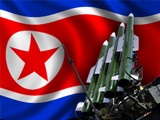|
|
TODAY.AZ / Weird / Interesting
Amputations performed without anesthesia in North Korea, report says
15 July 2010 [16:23] - TODAY.AZ
 North Korea's health care system is in shambles with doctors sometimes performing amputations without anesthesia and working by candlelight in hospitals lacking essential medicine, heat and power, a human rights watchdog said Thursday.
North Korea's health care system is in shambles with doctors sometimes performing amputations without anesthesia and working by candlelight in hospitals lacking essential medicine, heat and power, a human rights watchdog said Thursday.North Korea's state health care system has been deteriorating for years amid the country's economic difficulties. Many of its 24 million people reportedly face health problems related to chronic malnutrition, such as tuberculosis and anemia, Amnesty International said in a report on the state of the health care system.
A 24-year-old defector from northeastern Hamkyong province told Amnesty that a doctor amputated his left leg from the calf down without anesthesia after his ankle was crushed by a moving train when he fell from one of the cars.
"Five medical assistants held my arms and legs down to keep me from moving. I was in so much pain that I screamed and eventually fainted from pain," said the man, identified only by his family name, Hwang. "I woke up one week later in a hospital bed."
The report was based on interviews with more than 40 North Koreans who have defected, mostly to South Korea, as well as organizations and health care professionals who work with North Koreans. Amnesty researchers did not have access to North Korea, one of the world's most closed countries.
There was no immediate reaction from North Korea, which is sensitive to outside criticism and usually responds through its state-controlled media, though sometimes days or even weeks later.
North Korea says it provides free medical care to all its citizens. But Amnesty said most interviewees said they or a family member had given doctors cigarettes, alcohol or money to receive medical care.
Doctors often work without pay, have little or no medicine to dispense and reuse scant medical supplies, the report said.
"People in North Korea don't bother going to the hospital if they don't have money because everyone knows that you have to pay for service and treatment," a 20-year-old North Korean defector named Rhee was quoted as saying. "If you don't have money, you die."
Many interviewees said they had to walk as long as two hours to get to a hospital for surgery, said Norma Kang Muico, an Amnesty researcher and author of the report.
North Koreans are numbed to what was wrong with the health system, because "things keep progressively getting worse, or even staying the same but at that low level," she told reporters in Seoul on Thursday.
Amnesty blamed failed or counterproductive government policies and said North Korea should cooperate with aid donors to ensure transparency in the distribution of food assistance and guarantee that medical personnel are paid adequately.
The group also recommended that countries such as South Korea, the U.S., China, Japan and Russia ensure that humanitarian assistance in North Korea is based on need and is not subject to political conditions.
/Hurriyet Daily News/
URL: http://www.today.az/news/interesting/70992.html
 Print version
Print version
Views: 2512
Connect with us. Get latest news and updates.
See Also
- 19 February 2025 [22:20]
Visa and Mastercard can return to Russia, but with restrictions - 05 February 2025 [19:41]
Japan plans to negotiate with Trump to increase LNG imports from United States - 23 January 2025 [23:20]
Dubai once again named cleanest city in the world - 06 December 2024 [22:20]
Are scented candles harmful to health? - 23 November 2024 [14:11]
Magnitude 4.5 earthquake hits Azerbaijan's Lachin - 20 November 2024 [23:30]
Launch vehicle with prototype of Starship made its sixth test flight - 27 October 2024 [09:00]
Fuel prices expected to rise in Sweden - 24 October 2024 [19:14]
Turkiye strikes terror targets in Iraq and Syria - 23 October 2024 [23:46]
Kazakhstan supplied almost entire volume of oil planned for 2024 to Germany in 9 months - 23 October 2024 [22:17]
Taiwan reported passage of Chinese Navy aircraft carrier near island
Most Popular
 Antalya Diplomacy Forum becomes center of global dialogue
Antalya Diplomacy Forum becomes center of global dialogue
 Separatists & Pashinyan - the farce continues
Separatists & Pashinyan - the farce continues
 The "parallel" worlds of Armenia
The "parallel" worlds of Armenia
 4SIM signs MoUs with Chinese institutions to boost cooperation in green and industrial technologies
4SIM signs MoUs with Chinese institutions to boost cooperation in green and industrial technologies
 Azerbaijani and Georgian Presidents hold expanded meeting over luncheon
Azerbaijani and Georgian Presidents hold expanded meeting over luncheon
 A fat, nosy and bald hint that Armenia will remove claims against Azerbaijan from the Constitution
A fat, nosy and bald hint that Armenia will remove claims against Azerbaijan from the Constitution
 Foreign diplomats tour liberated cities of Khankendi and Shusha
Foreign diplomats tour liberated cities of Khankendi and Shusha
